(Adopted on July 1, 1979 and amended on: March 14, 1997)
The Code was adopted on 1 July, 1979 and amended on: 14 March, 1997
The Code is comprised of 11 chapters, 452 articles, prescribes the Crimes of Embezzlement and Bribery in chapter 8.
Chapter III Crimes of Undermining the Order of Socialist Market Economy
Article 163. Enterprise work personnel who make use of their job opportunity to demand property from others, or illegally receive others property in exchange for benefits, shall, in cases involving relatively large amounts, be punished with imprisonment or criminal detention for less than five years; for cases involving a large amount, with imprisonment of over five years, and may be subject to forfeiture of property.
Company and enterprise work personnel, who, in the course of economic contacts, receive personal kick-backs and commissions in various forms in violation of state rules, shall be punished according to provisions under the preceding paragraph.
Personnel performing public duties in state-owned companies and enterprises, and personnel assigned by state- owned companies and enterprises to non-state-owned companies and enterprises for performance of public duties found to be committing the acts mentioned in the two preceding paragraphs, shall be convicted and punished according to provisions under Articles 385 and 386 of this law.
Article 164. Offering property to company and enterprise work personnel for improper benefits shall in cases involving relatively large amounts be punished with imprisonment or criminal detention for less than three years, for cases involving a large amount, with imprisonment of over three years but less than 10 years, and with fine.
Units committing offenses under the preceding paragraph shall be punished with a fine, with personnel directly in charge and other directly responsible personnel being punished according to provisions of the preceding paragraph.
A briber who confesses his bribery act before prosecution may receive a lighter sentence or a waiver for punishment.
Article 165. Directors and managers of state-owned companies or enterprises who, in order to gain illegal benefits, make use of their job opportunity to conduct for themselves or others business similar to that conducted by companies or enterprises to which they attach, shall, in cases involving a large amount, be punished with imprisonment or criminal detention for less than three years, with a fine or a separately imposed fine, for cases involving extraordinarily large amounts, with imprisonment of over three years but less than seven years, and with fine.
Article 166. Work personnel in state-owned companies, enterprises, or institutions, who use their job opportunity to commit the following acts that seriously hurt state interests, shall be punished with imprisonment or criminal detention of less than three years, with a fine or a separately imposed fine; for cases that cause extraordinary huge losses to state interests, with imprisonment of over three years and less than seven years, and with fine:
(1) Offering profitable business conducted by their own units to their relatives and friends for operation;
(2) buying merchandise from units operated and managed by their relatives and friends at a price apparently higher than market price or selling merchandise to units operated and managed by their relatives and friends at a price apparently lower than market price; or
(3) Buying substandard merchandise from units operated and managed by their relatives and friends.
Chapter V the Crime of Encroaching on Property
Article 271. In cases where a person of a company, enterprise, or any unit, takes over the unit’s property by taking advantage of his office, and the amount involved in quite large, he is to be sentenced to not more than five years of fixed-term imprisonment, or criminal detention; when the amount involved is huge, the sentence is to be not less than five years, and may be in addition to confiscation of property.
When personnel engage in public service in state-owned corporations, enterprises, or other state-owned units; or when personnel of these corporations, enterprises and units assigned to engage in public service in nonstarter-owned corporations, enterprises, or other units themselves as stated in the preceding paragraph, they are to be convicted and punished according to regulations in Articles 382 and 383 of this law.
Article 272. When personnel of companies, enterprises, and other units, who take advantage of their offices to misappropriate their units’ funds for their own use or for lending to others, and the amounts involved are relatively large and have not been returned for a period of over three months; or, when the period is shorter than three months but the amounts involved are quite large and the money is used for unlawful profit-making activities, they are to be sentenced to not more than three years of fixed-term imprisonment or criminal detention; those who misappropriate huge amounts of their units’ funds, or those whose misappropriations are large and who refuse to return them are to be sentenced to not less than three years but not more than 10 years of fixed-term imprisonment.
Personnel engaged in public service in state-owned corporations, enterprises and other state-owned units, and personnel state-owned corporations, enterprises and other state-owned units assigned to engage in public service at non state-owned corporations, enterprises and other units as stated in the preceding paragraph are to be convicted and punished according to the regulations in Article 384 of this Law.
Article 273. Those directly responsible for misappropriating state funds and materials allocated for disaster relief, emergencies, flood control, allowances for disabled servicemen and the families of revolutionary martyrs and servicemen, aid-the-poor programs, resettlement, and social relief, when the circumstances are serious and have caused major damage to the interests of the state and the people, are to be sentenced to not more than three years of fixed-termed imprisonment or criminal detention; when the circumstances are particularly serious, the sentence is to be not less than three years but not more than seven years of fixed-term imprisonment.
Chapter VIII Graft and Bribery
Article 382. State personnel who take advantage of their office to misappropriate, steal, swindle or use other illegal means to acquire state properties constitute the crime of graft.
Those who are entrusted by state organs, state companies, state enterprises, state undertakings and mass organizations to administer and operate state properties but take advantage of their office to misappropriate, steal, swindle or use other illegal means to acquire state properties also constitute the crime of graft.
Those who collaborate with those personnel as listed in the aforementioned two paragraphs and join the crime are considered as committing a joint crime.
Article 383. Those who commit the crime of graft are to be punished according to the following stipulations depending on the seriousness of their cases:
(1) Individuals who have engaged in graft with an amount of more than 100,000 Yuan are to be sentenced to more than 10 years of fixed-term imprisonment or life imprisonment and May, in addition, have their properties confiscated. In especially serious cases, those offenders are to be sentenced to death and, in addition, have their properties confiscated.
(2) Individuals who have engaged in graft with an amount of more than 50,000 Yuan but less than 100,000 Yuan are to be sentenced to more than 5 years of fixed-term imprisonment and may, in addition, have their properties confiscated. In especially serious cases, those offenders are to be sentenced to life imprisonment and, in addition, have their properties confiscated.
(3) Individuals who have engaged in graft with an amount of more than 5,000 Yuan but less than 50,000 Yuan are to be sentenced to more than one year but less than seven years of fixed-term imprisonment. In serious cases, those offenders are to be sentenced to more than seven years but less than 10 years of fixed-term imprisonment. Individuals who have engaged in graft with a amount of more than 1,000 Yuan but less than 10,000 Yuan may receive a reduced punishment or be exempted from punishment if they express repentance after having committed crimes and actively returning the illegally obtained money. However, they will receive administrative action to be decided by the unit to which they belong or the higher administrative organ.
(4) Individuals who have engaged in graft with an amount of less than 5,000 Yuan, with the situation being serious, are to be sentenced to less than two years of fixed-term imprisonment or criminal detention.
In lighter cases, they will be given administrative action to be decided by the unit to which they belong or the higher administrative organ.
Toward those who have committed repeated crimes of graft, all amounts of graft of unhandled cases are to be added in meting out punishment.
Article 384. State personnel who take advantage of their office and misappropriate public funds for personal use or illegal activities or misappropriate large amounts of public funds without returning the money within three months are guilty of the crime of embezzlement and are to be sentenced to not more than five years of fixed-term imprisonment or criminal detention. In serious cases, those offenders are to be sentenced to more than five years of fixed-term imprisonment. Those who misappropriate a large amount of public funds without returning the money are to be sentenced to more than 10 years of fixed-term imprisonment or life imprisonment.
Those who misappropriate funds for relief of natural disasters, flood prevention, preferential treatment to military dependents, helping the poor and aid supplies for personal use are to be punished in a severe manner.
Article 385. State personnel who take advantage of their office to demand money and things from other people or if they illegally accept money and things from other people and give favors to the latter are guilty of the crime of bribery.
State personnel in their economic operation accept various kinds of kickback and handling fees for their personal use in violation of state provisions also guilty of the crime of bribery and are to be punished accordingly.
Article 386. Whoever commits the crime of accepting bribes is to be punished on the basis of Article 383 of this law according to the amount of bribes and the circumstances.
A heavier punishment shall be given to whoever demands a bribe.
Article 387. State organs, state-owned companies, enterprises, institutions, and people’s organizations which exact or illegally accept articles of property from other people and try to obtain gain for other people shall be sentenced to a fine if the circumstances are serious; moreover, their personnel who are directly in charge and other personnel who are directly held responsible for the crime are to be sentenced to not more than five years of fixed-term imprisonment or to criminal detention.
In economic activities, should the units listed in the preceding paragraph secretly accept, outside the account, kickback or service charges of various types, they are to be punished as having accepted a bribe on the basis of the provisions in the preceding paragraph.
Article 388. State functionaries, who help tractors to seek illegitimate gain, exact or accept articles of property from tractors by taking advantage of the facilities created by their authority of office or position, or through the action related to the post of other state functionaries, shall be dealt with according to the crime of accepting bribes.
Article 389. An act of giving state functionaries articles of property in order to seek illegitimate gain shall be considered a crime of offering bribes.
In economic activities, whoever gives articles of property to state functionaries in violation of state provisions, when the amount is fairly large, or gives a kickback or service charges of various types to state functionaries in violation of state provisions is to be dealt with as committing the crime of offering bribes.
Whoever gives articles of property to state functionaries due to extortion but receives no illegitimate gain shall not be considered as committing the crime of offering bribes.
Article 390. Whoever commits the crime of offering bribes is to be sentenced to not more than five years of fixed-term imprisonment or to criminal detention; whoever offers bribes to seek illegitimate gain, when the circumstances are serious, or causes great damage to state interests, is to be sentenced to not less than five years and not more than 10 years of fixed-term imprisonment, or to not less than 10 years of fixed-term imprisonment or life imprisonment when the circumstances are extremely serious, and may in addition be sentenced to confiscation of property.
Before prosecution, offenders in offering bribes who take the initiative to admit their crime may receive a lighter punishment or be exempted from punishment.
Article 391. To seek illegitimate gain, whoever gives articles of property to state organs, state-owned companies, enterprises, institutions, and people’s organizations, or in economic activities gives kickbacks or service charges in violation of state provisions, is to be sentenced to not more than three years of fixed-term imprisonment or to criminal detention.
Whichever unit commits the crime mentioned in the preceding paragraph is to be sentenced to a fine, and the responsible persons who are directly in charge of the unit or other personnel who are held directly responsible for the crime shall be punished on the basis of the preceding paragraph.
Article 392. Whoever introduces bribery to state functionaries, when the Circumstances are serious, is to be sentenced to not more than three years of fixed-term imprisonment or to criminal detention.
Before prosecution, if the person introducing bribery to state functionaries takes the initiative to admit his/her crime, he or she may receive a lighter punishment or be exempted from punishment.
Article 393. To seek illegitimate gain, any unit which offers bribes or gives kickback or service charges to state functionaries in violation of state provisions, when the circumstances are serious, is to be sentenced to a fine, and the personnel directly in charge of the unit or other personnel who are directly held responsible for the crime are to be sentenced to not more than five years of fixed- term imprisonment or to criminal detention.
In case the income obtained illegally through bribery is received by an individual, the individual shall be punished according to the crime stipulated in Article 389 and Article 390 of this law.
Article 394. State functionaries who accept gifts in the course of carrying out official duties at home or in intercourse with foreign countries but who fail to turn over the gifts to the state in accordance with state provisions, when the amount is fairly large, shall be punished in accordance with the crimes stated in Article 382 and Article 383 of this law.
Article 395. When the property or expenses of state functionaries clearly exceed their legitimate income, when the difference is huge, they shall be ordered to explain the sources of their property. When state functionaries fail to explain the legitimacy of their property, that part of property shall be considered an illegal income, and they themselves shall be sentenced to not more than five years of fixed-term imprisonment or to criminal detention, and the difference must be handed over to the state.
State functionaries who have savings deposits in foreign countries must declare their deposits according to state provisions. Those who hide their deposits of this nature by not declaring them are to be sentenced to not more than two years of fixed-term imprisonment or to criminal detention; when the circumstances are not serious, they shall be given administrative punishment by the unit to which they belong or by a competent organ of a higher level according to the circumstance.
Article 396. State organs, state-owned companies, enterprises, business units, and mass organizations which violate state regulations by privately distributing state assets to groups of individuals in the name of the units, where the amounts involved are fairly large, the principal personnel directly responsible and other personnel with direct responsibility shall be sentenced to not more than three years of fixed-term imprisonment or criminal detention, and may in addition or exclusively be sentenced to a fine; and when huge amounts are involved, not less than three years and not more than seven years of fixed-term imprisonment, and may in addition be sentenced to a fine.
Judicial organizations and administrative and law enforcement organizations which violate state stipulations by privately distributing to groups of individuals fines and confiscated goods that should be turned over to the higher authorities, shall be punished in accordance with the stipulations of the preceding paragraph.



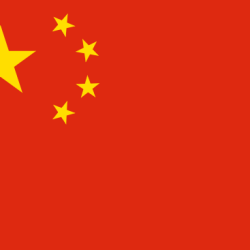
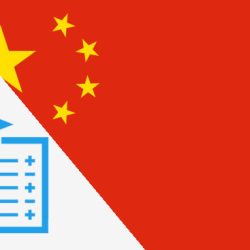
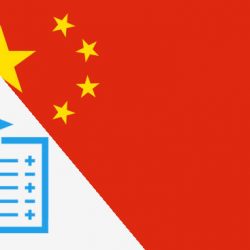
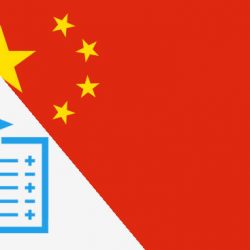
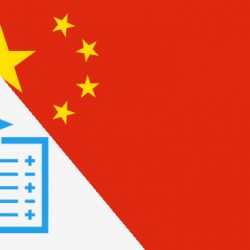
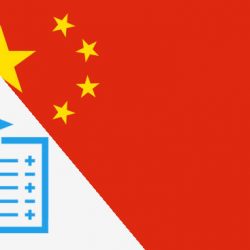
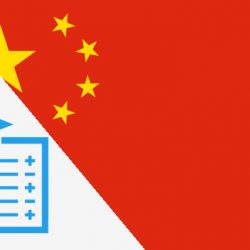
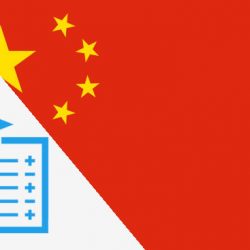
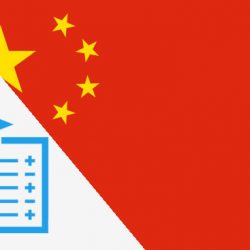
 We will not leak your personal information
We will not leak your personal information